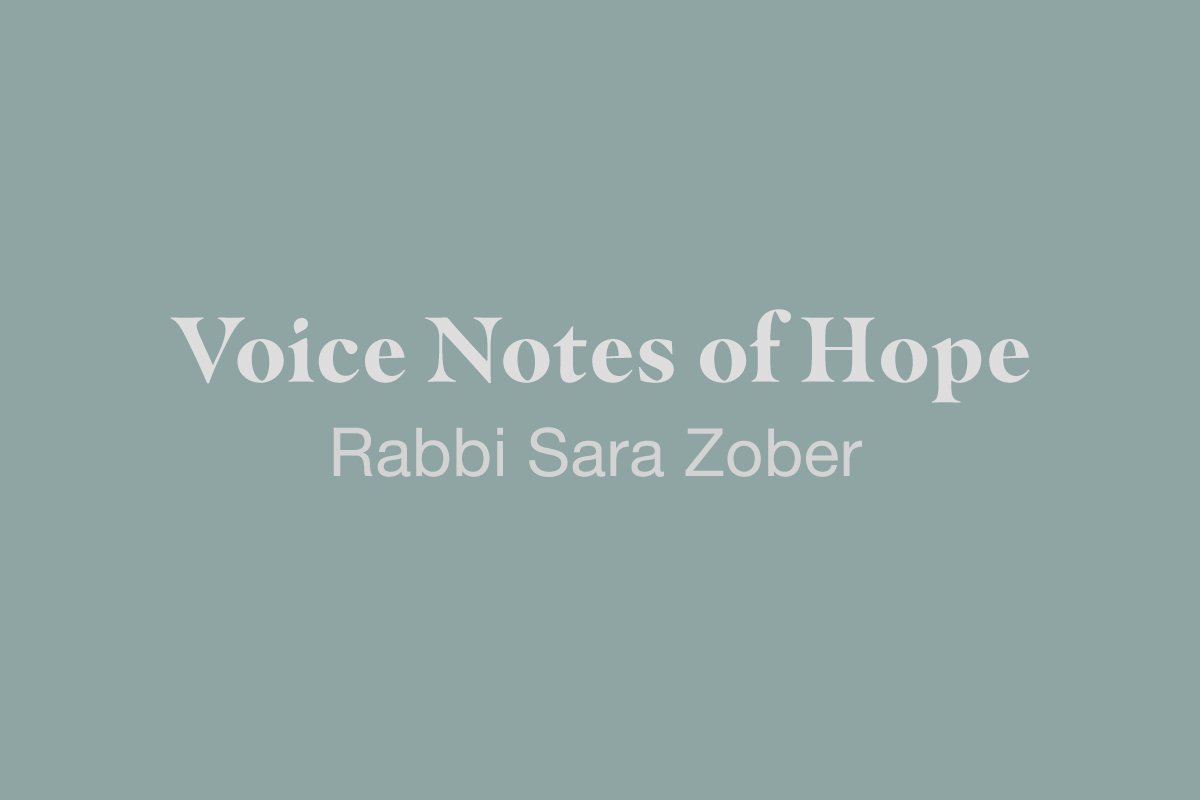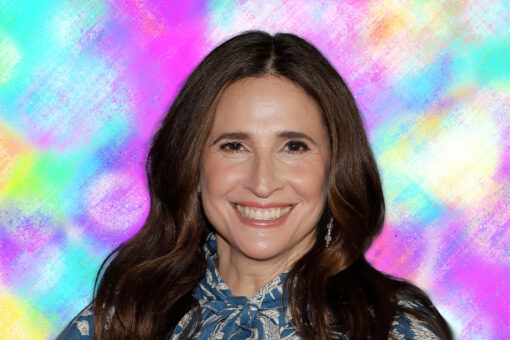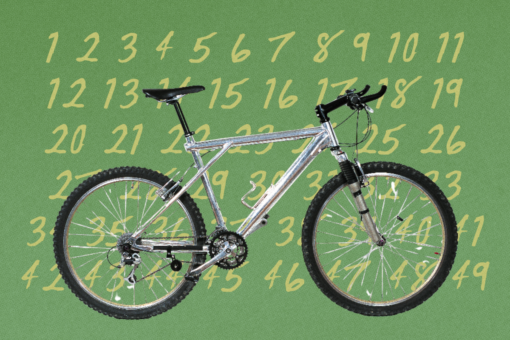It’s a scary time. Many of us are feeling despaired. Many of us are feeling hopeless. And we could all use a boost. So, we asked our favorite rabbis to send us voice notes of hope, reminders that as bad as things feel now, we must not give up. Here’s Rabbi Sara Zober, a rabbi at Temple Sinai in Reno, Nevada.
“How do we all keep up the hope for something better that we need at this time? Our tradition teaches us three things.
First, we have to open our eyes and see the way the world really looks right now. I am notoriously bad at remembering to wash the windows in our house. I have wonderful cleaners who come through every two weeks and get the surfaces and the blinds, but they don’t do the outsides of the windows. It’s not their job. So soon enough I’m standing in my clean kitchen and all I can see is gray skies out my window. If I open the door and look out, I have a beautiful blue-sky Reno day. But in my kitchen, looking through my grimy window, we might as well be covered in smoke again. It’s not reality, but if I don’t go outside and clean off my lens to the world, I can be led to think that things are worse than they actually are. There is much good that we should be grateful for now, and spending time in gratitude is a way to combat despair’s self-centered wallowing. But there is also much that needs to be fixed. Only when we can hold both at the same time are we able to do an honest cheshbon, an honest accounting of reality, and understand what the world needs.
After we see the world for what it is, we turn our gaze to ourselves and see where we each are uniquely gifted and how we can contribute actively to the world’s betterment. My teacher, Rabbi Michael Marmur, points out that the root of the word tikvah, hope, is also the root of the word mikvah, the ritual bath in our tradition used for immersion to make things pure again. This connection teaches us that hope is the thing that purifies us, that makes what we do sacred again, that allows us to function once again. Hope is our method of nourishment, and it’s active, something we have to immerse ourselves in. Hope is the purifying pool we have within us to withstand rejection after rejection, setback after setback, loss after loss.
Third, we remember that life is not a sprint or a marathon, but a relay. Our holiest scroll ends unfulfilled, the story incomplete. Indeed, the people who set out for the promised land are not the people who go into the promised land. We, unlike Christians, don’t have a book of Revelation, a book that tells us what the end of days and the resurrection of the dead is going to look like. We have our best traditions of speculation and scholarship, philosophy and faith, hope but no certainty. To combat despair and nourish hope, we need only act for what is good, one small step at a time, and find those who will carry our baton long after we are gone.”
Listen on Instagram, and share, here.



